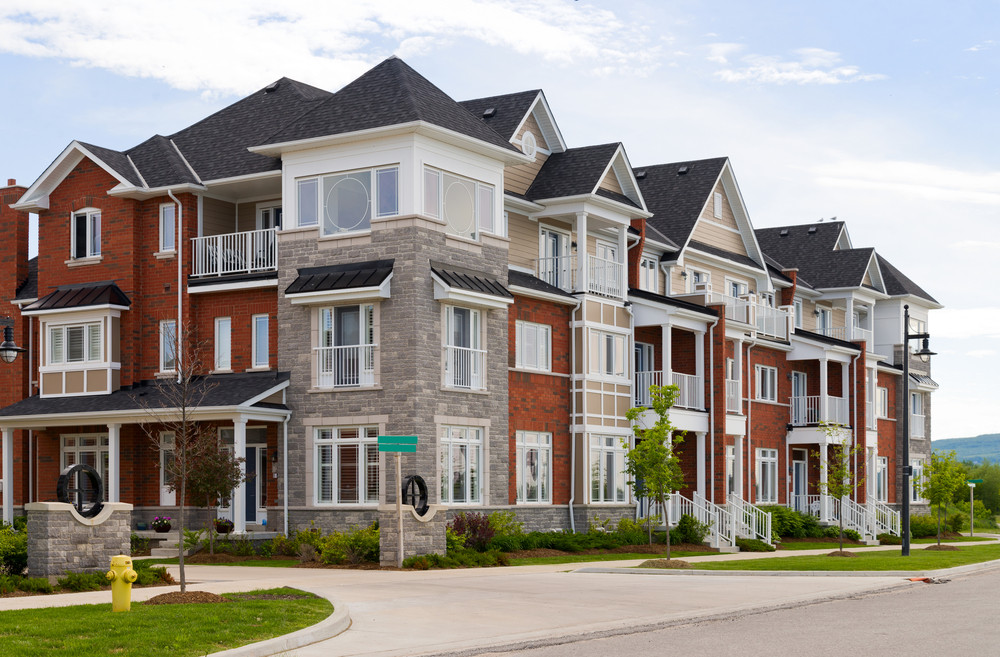

If you’re in the market for smaller home with less maintenance and cost, you’ve probably considered both condos and townhouses. However, you might not have realized that there are differences between the two in the types and cost of mortgages you can get. Here’s what you need to know before you decide:
Condos and Townhouses Defined
First, what is the difference between a condo and a townhouse? Let’s take a look at the definitions of both.
A condominium is an individually owned apartment in a group of units. When you buy a condo, you are entering into a type of shared ownership because you are paying for a part of the upkeep to the shared grounds and common areas. Condos can essentially look like any other apartment building; the main difference is that each unit is purchased individually, rather than the entire complex being owned by one person or entity. All condos are managed with a homeowner’s association (HOA).
A townhouse is a multi-story property usually connected to other residences. Structurally, they often differ from condos by having their own entrance and garage. While these types of homes are typically managed by an HOA, any land directly attached to the townhouse belongs to and is the responsibility of the homeowner.
Mortgage Differences
Every “condo project” (the entire building and the way its run) must be approved by a lender before you can get a mortgage for a specific unit. This means that the HOA rules and financial situation will be investigated, including things like the maximum single investor concentration. Many government loans are very picky about the types of “warrantable” condos they allow. If you are hoping to get a Fannie Mae, Freddie Mac, FHA, or VA mortgage, it may be more difficult to find financing for a condo purchase than on a townhouse. And if you do find a condo that meets the requirements, if you don’t put down a large down payment, you may have to pay more in fees. For example, Fannie Mae charges an extra 0.75% fee to the mortgage interest rate on condos if the loan-to-value ratio is higher than 75%. (However, if your loan is for 15 years or less, the fee does not apply.)
Mortgages can be easier to obtain with townhouses because they are often considered a type of property rather than a form of ownership. They are often part of a Planned Unit Development (PUD), which means the townhouses are treated like single-family residences for the mortgage's sake. These loans usually come with better rates and terms than condo loans. Government-backed mortgages like FHA and VA usually have less stringent qualifications on townhouses.
Sometimes though, because they are often an attached housing type with HOAs they can also be defined by lenders as an attached condo and could be subject to similar rules and eligibility. Ask your real estate agent to dig into the details of how the property is defined before you make an offer.
Basically, even if a condo and townhouse have similar features, there can be very different options and prices when it comes to a mortgage. Please call us with any questions that you have!
